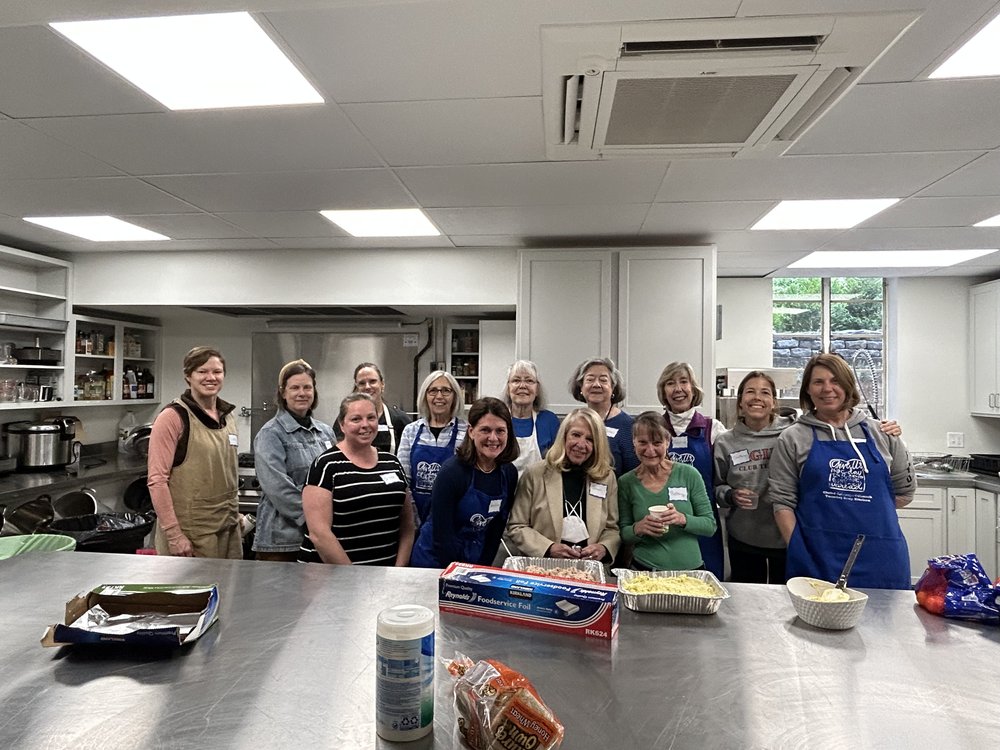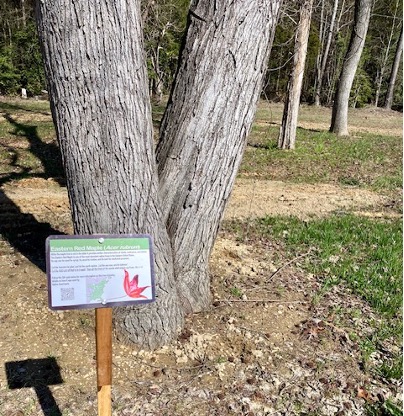
Love Jesus. Embody justice. Be disciples.
Stories from the Diocese
Northern Neck Region Hosts Safe Church Training
In mid-April, over 25 folks gathered at St. Stephen’s, Heathsville to participate in a Regional Safe Church Training Event using a hybrid approach of in-person and online training using the Praesidium platform.
Christ Church, Charlottesville, Offers Free Weekly Lunches to the Community
Christ Church has been serving the downtown Charlottesville area for over 30 years through the Christ Church Community Lunch. Church volunteers prepare and serve a nourishing meal every Tuesday to all who walk through their doors.
Trail Links to Bible and Native American History
St. Peter's Episcopal Church recently opened a "Trees of the Bible" walking trail. St. Peter’s Rector, The Very Rev. Rodney E. Gordon said the trail allows walkers to explore the natural beauty of the area while learning about the significance of its trees in both the Bible and American history.
St. Paul’s Seeking Episcopal Students for Scholarships to UVA
CHARLOTTESVILLE, VA - St. Paul’s Memorial Church is seeking Episcopal students at The University of Virginia to apply for Episcopal Church Leadership Scholarships. The Rev. Dr. Peter Kang, UVA chaplain at St. Paul’s said up to $300,000 in $5,000 and $20,000...
Upcoming Events
2024 Koinonia Lecture: Faith and Advocacy on Death Row
2024 Koinonia Lecture: Faith and Advocacy on Death Row
On Sunday, April 28, at 5:30 p.m., the Rev. Dr. Jennifer M. McBride will deliver the 2024 Koinonia Lecture at St. Paul's Memorial Church entitled Faith and Advocacy on Death Row.
Spring Clergy Retreat 2024
Spring Clergy Retreat 2024
Facilitator: The Rev. Dr. Luke A. Powery, Dean of Duke University Chapel and Professor of Homiletics and African and African American Studies.
The Church as Movement
The Church as Movement
Author, Speaker, and National Director of the V3 Church Planting Movement, JR Woodward, will invite us to consider why our current paradigms of Church need to change and offer guidance on ways to bring about such change.
Art Days at Roslyn 2024
Art Days at Roslyn 2024
We gather in the picnic pavilion from 10 am to 3 pm. Each gathering will have a theme to get the creative juices flowing. Bring your own project to work on, a project to share with others, or work with the art supplies that we’ll have on hand. Artists of every level o...
News Releases
An Update from the Creation Care Committee – Earth Day 2024
A New Resource from the Environmental Parish Ministry Conference. The Creation Care Committee, led by Kristine Montamat and supported by more than a dozen community volunteers, co-hosted an Environmental Parish Ministry Conference at Virginia Theological Seminary on February 17.
Update | The Reverend Canon Chanta Bhan
The Reverend Canon Chanta Bhan, who began her ministry as Canon for Discipleship in the Diocese of Virginia in the autumn of 2023, is departing this position.
An Update on the Wildfires in the Shenandoah and Fort Valleys
As of Wednesday afternoon there are wildfires affecting areas within our diocese, including Shenandoah County, Page County, Shenandoah National Park and Valley, and Fort Valley. The Very Rev. Kathleen Murray, Rector of St. Andrew’s Episcopal Church in Mount Jackson...




